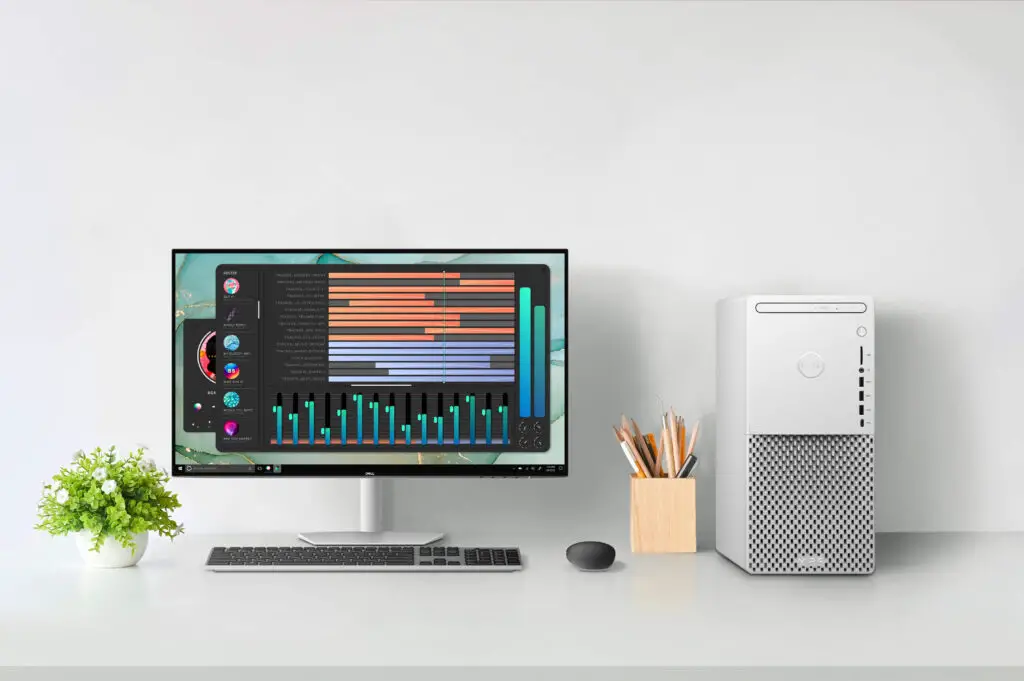
For anyone who has lived through all the ups and downs of computer technology, you know there is something unique about a desktop.
Sure, they are not as portable as a laptop, but you probably recall the glory days when a big beige box under your desk meant you could get real work done.
You also might remember being able to add loads of RAM, swap out the graphic card, and even replace the entire motherboard. In short, the halcyon days of a big box at your desktop might be long forgotten by some, but not those of us who lived through it.
I should add a caveat here to this review because the desktop is still viable. A few friends who recently graduated from college have discovered the joy of building their own rig, choosing the motherboard and configuration, and the freedom to swap out parts at will. Still, the quick realization you might have if you have visited a school, a coffee shop, or a startup in the last few years before COVID, is that laptops rule the day. They are king of the hill.
That was not always the case. I started out as a journalist back in 2001 reviewing desktop computers and routers. I used to build gaming desktops quite often. In recent years, writing mostly a business column for Inc. Magazine from 2008 until 2020 and most recently writing for Forbes.com and a few others, I moved away from this techie past.
That’s why reviewing the new desktop was such a throwback for me. I’ve been using a laptop at my desk for at least 6-7 years now, connected to a large monitor. I had forgotten a few things. One is that a desktop, like the XPS model I’m testing, is quite nimble. I had not noticed how pokey Google Chrome is on most laptops that only have 8GB of RAM. I mean, seriously — not everyone needs 32GB of memory, but it has been quite a while since I’ve had so much power for all of my apps. I even tested a gaming laptop not long ago but it only had 16GB of RAM. And, the XPS I’m testing uses a lightning-fast Intel Core i7.
For those who are also reliving their past or just want a capable rig, here are the other specs in the system I’m testing: Intel Core i7-10700K processor, 32GB of RAM, NVIDIA GeForce RTX 3070 for graphics, both a 512 SSD and a 2TB HDD with a Blu-Ray drive (remember those?).
You would think my first thought would have been, finally, I can run Adobe Photoshop. Or maybe — I can now open 42 tabs in Chrome and not have it crash or stall.
Instead, I immediately signed up for Xbox Gamepass for Windows PC and installed Flight Simulator. (Which means I did crash and stall, but not quite in the same way.) The game looks glorious and runs like a breeze with no problems at all. I flew all the way to Vienna from a small town in the country, then I did a fly-by over my own house. It all looked spectacular.
I had also forgotten how handy it is to have ports you can find easily. I plugged in a camera card, connected a mini printer, and even added an external drive. My only slight issue is that there is only one USB-C port, so I had to use an adapter for most of my gear.
The XPS desktop also uses a Killer AX1650i wireless card that supports the latest Wi-Fi 6 standard. I’m going to keep testing this, but so far I have noticed the Wi-Fi is stable and fast for everything I do all day, including online play in Flight Simulator. Time will tell if all of my downloads run smoother than the laptop I’ve been running for the last few months or not.
The XPS uses an open architecture as well, so I’ll be curious if people start swapping out parts. I know I don’t need to. The XPS is outfitted with all of the high-tech gear I need and then some. It’s been amazing reliving the days of desktop computing, and I had forgotten how much I like being able to connect gadgets, open the box and peek at the components, and also not worry about running out of memory or disk space anytime soon. It’s pure joy.
The entire rig I reviewed costs $2,285 and is available . Gearadical receives a small affiliate amount when you buy.